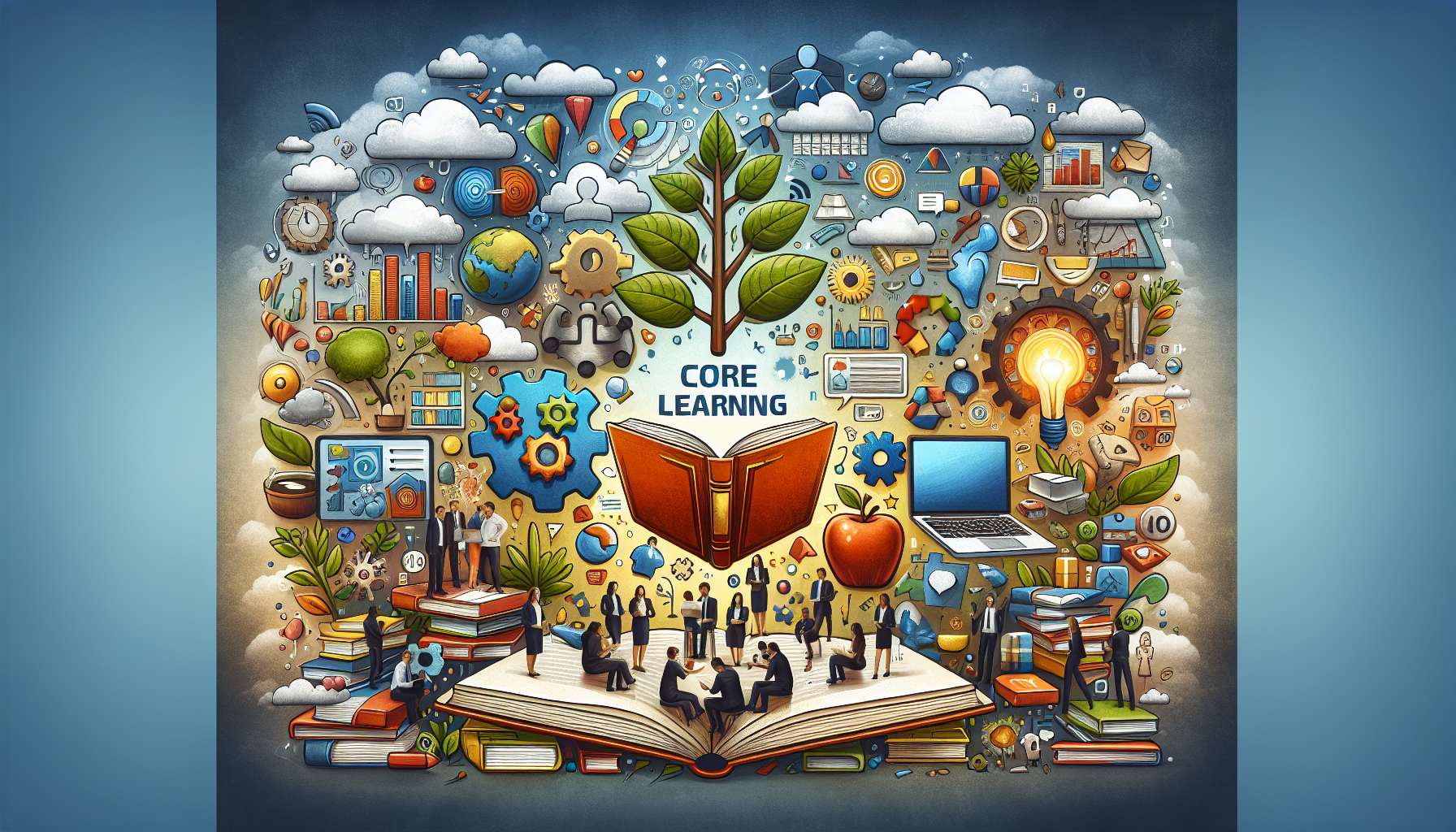Unlocking the Secrets of Core Knowledge Elements
Welcome to the fascinating world of Core Knowledge Elements, where the building blocks of understanding come together to form a comprehensive framework for learning and knowledge acquisition. In a society driven by information and data, having a solid grasp of core knowledge elements is essential for success in various fields and industries. But what exactly are core knowledge elements, and how do they shape our understanding of the world around us? Join us on a deep dive into this intriguing topic as we unravel the mysteries and explore the significance of core knowledge elements.
The Fundamentals of Core Knowledge Elements
At its core, core knowledge elements refer to the foundational concepts, principles, and facts that serve as the basis for understanding a particular subject or discipline. These essential elements provide a framework for organizing information, making connections, and drawing conclusions. In essence, core knowledge elements are the building blocks upon which we construct our knowledge and make sense of the world.
Think of core knowledge elements as the alphabet of a language without them, it would be impossible to form words, sentences, and paragraphs. Similarly, without a solid grasp of core knowledge elements in a given field, it can be challenging to navigate complex ideas, solve problems, or engage in meaningful discussions.
The Historical Roots of Core Knowledge Elements
The concept of core knowledge elements dates back to ancient times when philosophers and scholars sought to understand the nature of knowledge and how it is acquired. In his seminal work, “The Republic,” Plato introduced the idea of innate knowledge, suggesting that certain truths are inherent in the human mind and do not require external sources for validation.
Fast forward to the modern era, and educators such as E.D. Hirsch have championed the importance of core knowledge in the curriculum, arguing that a shared body of knowledge is essential for fostering literacy, critical thinking, and cultural awareness. Hirsch’s Core Knowledge Foundation has developed a comprehensive curriculum that outlines the core knowledge elements students should acquire at each grade level, from kindergarten to eighth grade.
Real-World Applications of Core Knowledge Elements
Core knowledge elements are not limited to the classroom they play a crucial role in various professions and industries, shaping the way we approach problems, make decisions, and communicate with others. In the field of medicine, for example, healthcare professionals rely on a deep understanding of core knowledge elements such as anatomy, physiology, and pharmacology to diagnose and treat patients effectively.
Similarly, in the world of technology, software developers must have a solid grasp of core knowledge elements like algorithms, data structures, and programming languages to create innovative solutions and products. Without a strong foundation in these fundamental concepts, it would be challenging to excel in a rapidly evolving and competitive industry.
The Future of Core Knowledge Elements
As we continue to progress into the digital age, the importance of core knowledge elements will only grow in significance. With the proliferation of information and the rise of artificial intelligence, individuals who possess a deep understanding of core knowledge elements will have a competitive edge in the job market and society at large.
Moreover, as we grapple with complex global challenges such as climate change, social inequality, and technological disruption, having a shared body of core knowledge elements can serve as a unifying force that enables us to work together towards common goals and solutions.
Challenges and Controversies Surrounding Core Knowledge Elements
While core knowledge elements are essential for learning and knowledge acquisition, they are not without their challenges and controversies. Critics argue that a rigid focus on core knowledge elements can stifle creativity, limit critical thinking, and perpetuate inequities in education. They suggest that a more holistic and interdisciplinary approach to learning is needed to prepare students for the complexities of the modern world.
Additionally, the question of what constitutes core knowledge elements in a rapidly changing and diverse society is a subject of ongoing debate. As our understanding of the world evolves and new discoveries emerge, educators and scholars must continually reassess and update the core knowledge elements that form the basis of our learning and knowledge systems.
Expert Opinions on Core Knowledge Elements
To shed light on the topic of core knowledge elements, we reached out to renowned educator and author, E.D. Hirsch, founder of the Core Knowledge Foundation. According to Hirsch, “Core knowledge elements are essential for fostering a shared understanding of our cultural heritage, promoting literacy, and preparing students for success in the 21st century. By providing students with a solid foundation of core knowledge, we empower them to think critically, communicate effectively, and engage meaningfully with the world around them.”
Common Misconceptions About Core Knowledge Elements
One common misconception about core knowledge elements is that they are static and unchanging. In reality, core knowledge elements are dynamic and evolving, reflecting our ever-expanding understanding of the world. While certain foundational concepts may remain constant, new discoveries and perspectives continually reshape and redefine our core knowledge elements.
Conclusion: The Power of Core Knowledge Elements
To wrap things up, core knowledge elements are the bedrock of learning and understanding, providing a solid foundation upon which we can build our knowledge and make sense of the world. By embracing core knowledge elements in education, professions, and society, we can equip individuals with the tools they need to navigate complexity, solve problems, and create a better future for all.
As we continue to explore the depths of core knowledge elements, let us remember that knowledge is not a fixed destination but a continuous journey of discovery, growth, and transformation. By embracing the power of core knowledge elements, we can unlock new possibilities, challenge assumptions, and chart a course towards a brighter and more enlightened future.







